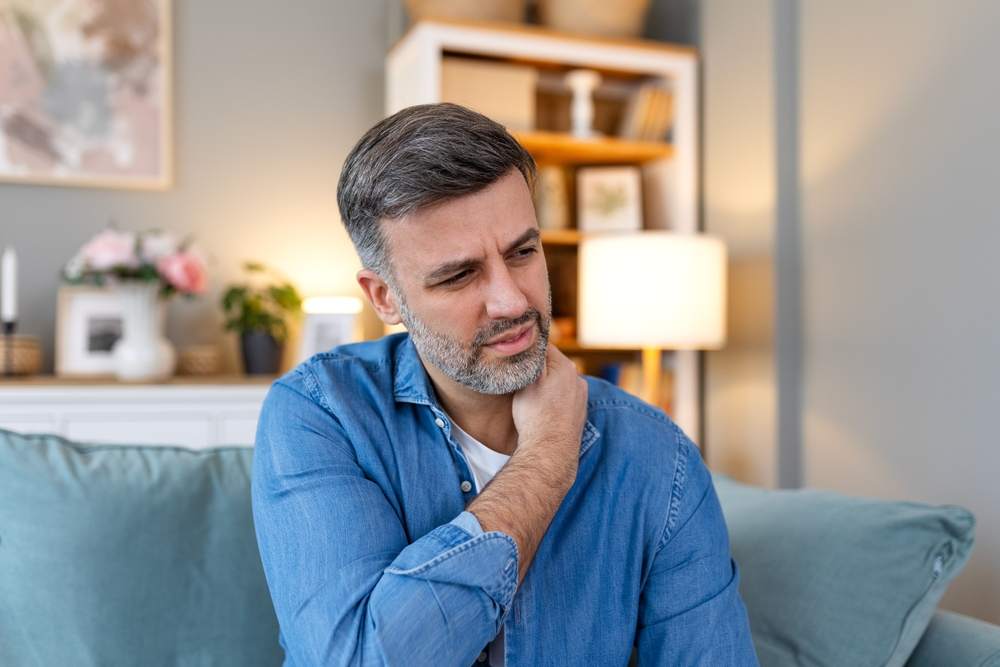 Delayed shoulder pain after a car accident can be both surprising and concerning, manifesting hours, days, or even weeks after the initial incident. Unlike immediate pain that appears at the moment of impact, this delay can lead to uncertainty about the severity of the injury and confusion about the necessary steps for recovery. Understanding the causes, symptoms, and treatment options for delayed shoulder pain is essential for anyone facing this condition. Immediate consultation with medical professionals, such as the experienced orthopedic specialists at AICA ensures that injuries are effectively addressed.
Delayed shoulder pain after a car accident can be both surprising and concerning, manifesting hours, days, or even weeks after the initial incident. Unlike immediate pain that appears at the moment of impact, this delay can lead to uncertainty about the severity of the injury and confusion about the necessary steps for recovery. Understanding the causes, symptoms, and treatment options for delayed shoulder pain is essential for anyone facing this condition. Immediate consultation with medical professionals, such as the experienced orthopedic specialists at AICA ensures that injuries are effectively addressed.
Why Does Shoulder Pain Appear Days After an Accident?
The onset of delayed shoulder pain following a car accident is often due to the body’s initial response to trauma. An adrenaline rush and the release of stress hormones can temporarily mask pain and injuries. As these hormone levels normalize, previously unnoticed symptoms may begin to surface. Shoulder pain can result from various types of injuries, including soft tissue damage, joint dislocation, or bone fractures that affect the shoulder’s complex structure.
Learn more about other delayed injuries after a car accident
Common Causes of Delayed Shoulder Pain Post-Accident
Several factors related to the trauma experienced during a car accident can lead to delayed shoulder pain:
- Soft Tissue Injury: Strains or sprains to the muscles, tendons, or ligaments in the shoulder can result in pain that develops after the initial trauma.
- Rotator Cuff Injury: The rotator cuff can be damaged during an accident, leading to pain and weakness in the shoulder, often noticed only after the acute post-accident phase.
- Dislocation: The shoulder joint may become partially or fully dislocated during an accident. While immediate pain is common, the full extent of the injury may not be felt until later.
- Fractures: Bone fractures in the shoulder area, such as to the clavicle or scapula, may not always be immediately apparent, especially if the initial pain is assumed to be from more superficial injuries.
- Nerve Damage: Trauma to the shoulder can also affect nerves, leading to delayed pain, numbness, or tingling sensations.
- Adhesive Capsulitis (Frozen Shoulder): Following an accident, stiffness and pain in the shoulder may gradually increase, leading to a decreased range of motion. This condition, known as frozen shoulder, can develop if the shoulder is not moved properly after injury due to pain or fear of movement.
- Bursitis: Inflammation or irritation of the bursae in the shoulder can lead to pain, swelling, and restricted movement that may not be immediate but develop over time.
Recognizing Symptoms of Delayed Shoulder Pain
If you begin experiencing shoulder pain after a car accident, be on the lookout for symptoms such as:
- Persistent or worsening pain in the shoulder area.
- Reduced range of motion and difficulty performing usual activities.
- Swelling or bruising around the shoulder.
- Weakness in the arm or difficulty lifting objects.
- Popping or cracking sounds in the shoulder joint.
Immediate Steps to Take After Noticing Delayed Shoulder Pain
Upon noticing symptoms of delayed shoulder pain after a car accident, taking immediate and appropriate actions can significantly influence the treatment’s effectiveness and recovery speed:
- Seek Medical Attention: Consult with healthcare professionals who can perform a physical examination and may use imaging studies like X-rays or MRIs to diagnose the cause of your pain accurately.
- Rest: Allow your body the time it needs to recover by avoiding activities that strain the shoulder or exacerbate symptoms.
- Pain Management: Follow your healthcare provider’s advice for managing pain, which may include over-the-counter pain relievers, ice, or heat therapy.
- Physical Therapy: Once the injury has been assessed, physical therapy may be recommended to strengthen the shoulder, improve flexibility, and reduce pain.
Treatment Options for Delayed Shoulder Pain After a Car Accident
 The treatment for delayed shoulder pain will depend on the injury’s nature and severity:
The treatment for delayed shoulder pain will depend on the injury’s nature and severity:
- Physical Therapy: Custom exercises can help rehabilitate the shoulder, improving strength, flexibility, and range of motion.
- Medication: Pain relief and anti-inflammatory medications can help manage symptoms during recovery.
- Chiropractic Care: Adjustments and manipulations can sometimes alleviate pain and improve function, particularly if the pain is related to misalignment or nerve issues.
- Surgery: In cases of severe injury, such as significant rotator cuff tears or fractures, surgical intervention may be necessary to repair the damage.
When to Seek Specialized Care for Delayed Shoulder Pain
If you experience persistent or worsening shoulder pain after a car accident, it’s essential to seek care from specialists. AICA Orthopedics offers a team of experienced orthopedic specialists who are adept at treating shoulder injuries. Our shoulder doctors perform thorough examinations to assess the injury and provide a precise diagnosis. Imaging devices such as X-rays or MRIs assist in proper diagnosis and accurate treatment by offering an in-depth look at the area of concern.
Choosing AICA Orthopedics for your shoulder pain treatment means opting for a dedicated path towards recovery, alleviating your symptoms and restoring your shoulder’s health and function. Contact us to learn more about our services or to schedule an appointment.





